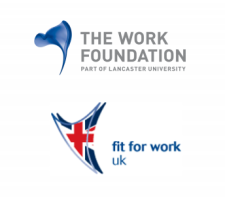October 30, 2014
Report claims business ethics are linked to performance
 Companies with well defined and consistent ethical policies are both more stable and more commercially successful, according to a new report published this week by the Chartered Management Institute. Based on a self-reporting survey of 2,500 CMI members the study found that over a third (37 percent) of managers in growing companies rate their own ethics as high, compared to just 19 percent in businesses that are contracting, which suggests a correlation if not causation. Just under a third (29 percent) of managers rate their organisation’s ethical standards as mediocre or poor. Senior managers also appear to have a more positive idea of their own organisation’s ethical standards than those in more junior and front line roles. Nearly half (48 percent) of senior managers believe their organisation has excellent ethical behaviour, compared to just a fifth (22 percent) of junior managers.
Companies with well defined and consistent ethical policies are both more stable and more commercially successful, according to a new report published this week by the Chartered Management Institute. Based on a self-reporting survey of 2,500 CMI members the study found that over a third (37 percent) of managers in growing companies rate their own ethics as high, compared to just 19 percent in businesses that are contracting, which suggests a correlation if not causation. Just under a third (29 percent) of managers rate their organisation’s ethical standards as mediocre or poor. Senior managers also appear to have a more positive idea of their own organisation’s ethical standards than those in more junior and front line roles. Nearly half (48 percent) of senior managers believe their organisation has excellent ethical behaviour, compared to just a fifth (22 percent) of junior managers.






















October 20, 2014
If you want to reduce the cost of your office, move to a creative area
by Maciej Markowski • Comment, Facilities management, Property, Technology
Clerkenwell Design Week
“First we shape our buildings, thereafter our buildings shape us.” Winston Churchill, House of Commons opening speech. Buildings do indeed shape us, but what seems to affect us even more is the neighbourhood. It’s the immediate environment as opposed to buildings that is much harder to create. It needs numerous factors to influence it, among them the two most precious components– the right people and enough time. Politicians all over the world dream of creating zones that will draw the most innovative companies. But it seems that most of them grow organically – the Silicon Valley in California, the Silicon Alley in New York and the Silicon Roundabout in London. The combination of low rents, proximity to the centre of a dynamic metropolis and interesting culture made the East London neighbourhood of Shoreditch, Clerkenwell and Aldgate a perfect magnet for some of the world’s most exciting companies. So should you think about relocating there too? Here are some things to consider. (more…)